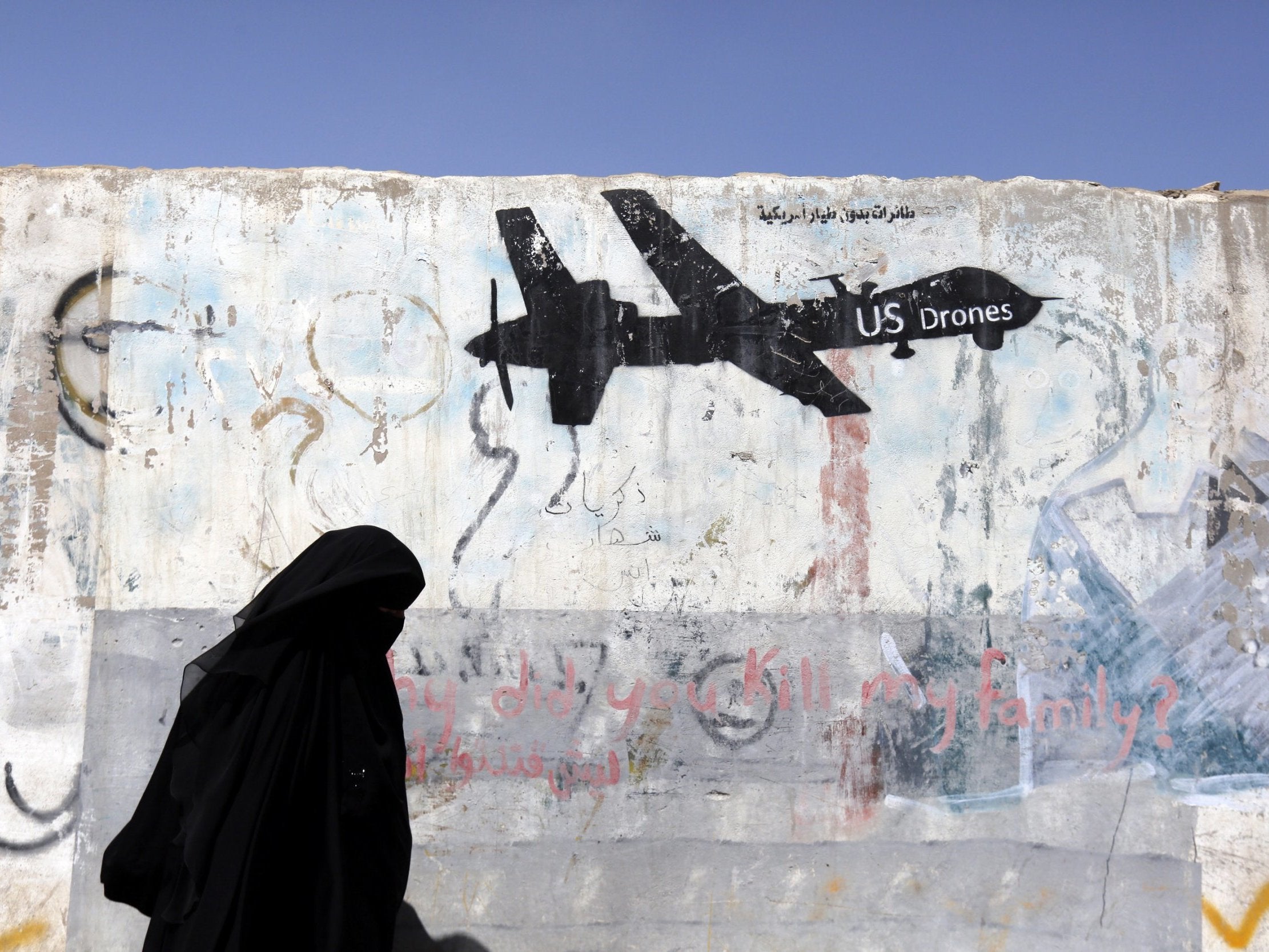US airstrikes killed civilians in Somalia, Amnesty report says
American forces 'in denial' over civilian deaths, says researcher

Your support helps us to tell the story
From reproductive rights to climate change to Big Tech, The Independent is on the ground when the story is developing. Whether it's investigating the financials of Elon Musk's pro-Trump PAC or producing our latest documentary, 'The A Word', which shines a light on the American women fighting for reproductive rights, we know how important it is to parse out the facts from the messaging.
At such a critical moment in US history, we need reporters on the ground. Your donation allows us to keep sending journalists to speak to both sides of the story.
The Independent is trusted by Americans across the entire political spectrum. And unlike many other quality news outlets, we choose not to lock Americans out of our reporting and analysis with paywalls. We believe quality journalism should be available to everyone, paid for by those who can afford it.
Your support makes all the difference.US airstrikes in Somalia killed two civilians and injured three in February, human rights watchdog Amnesty International said on Wednesday, in a statement that raised questions over US investigations of such allegations.
US Africa Command said it was assessing the allegations and goes to great lengths to avoid civilian casualties.
US forces have been fighting a decade-long struggle against the al-Qaeda-linked militant group al-Shabaab. The insurgency wants to overthrow Somalia's shaky, internationally backed government and rule using its own strict interpretation of Islamic law.
Africa Command says air strikes are a key weapon against al-Shabaab, but Amnesty says they also mistakenly target civilians.
A US airstrike in the town of Jilib on 2 February hit a family having a meal, Amnesty said, killing 18-year old Nurto Kusow Omar Abukar, injuring her two younger sisters - aged seven and 12 - and her grandmother. Amnesty cited an interview with the girls' father, who was present but uninjured in the strike.
“He was very devastated, he didn't know why his family was targeted,” Amnesty researcher Abdullahi Hassan told Reuters. “He said, 'I'm now in my farm, alone in an open place, if they want to kill me.'”
Mohamed Omar Abukar, the son of the 70-year-old woman, told Reuters his family had been devastated by the strike. His youngest niece had come to the capital for medical treatment, he said.
“She is OK and walking. My mum and my niece Fatuma ... are too seriously injured to be brought by car to Mogadishu,” he said.
Another strike on 24 February on the village of Kumbareere, about six miles north of Jilib, killed Mohamud Salad Mohamud, a father of eight who ran a banana farm and the local office for telecom company Hormuud, Amnesty said. Hormuud confirmed his death.
Africa Command (Africom) issued statements after both strikes saying it had killed militants.
“Following every airstrike, US Africa Command conducts additional analysis to ensure the military objectives were met and that there were no civilian casualties,” Africom told Reuters in response to the allegations from Amnesty.
“Our in-depth post-strike analysis relies on intelligence methods that are not available to non-military organisations, including Amnesty International ... The command's civilian casualty allegation assessment process is precise, comprehensive, and led by a team of experts.”
Abdullahi Hassan, an Amnesty researcher, said Africom should be more transparent about how it investigates allegations of civilian deaths.
“They seem to be living in denial that the airstrikes actually kill civilians,” he said.
Last year, Amnesty issued a report alleging 14 civilian deaths in five US air strikes in 2017 and 2018. At the time, Africa Command rejected the report but later said a review found that two civilians had been killed in a 2018 strike.
Reuters
Join our commenting forum
Join thought-provoking conversations, follow other Independent readers and see their replies
Comments